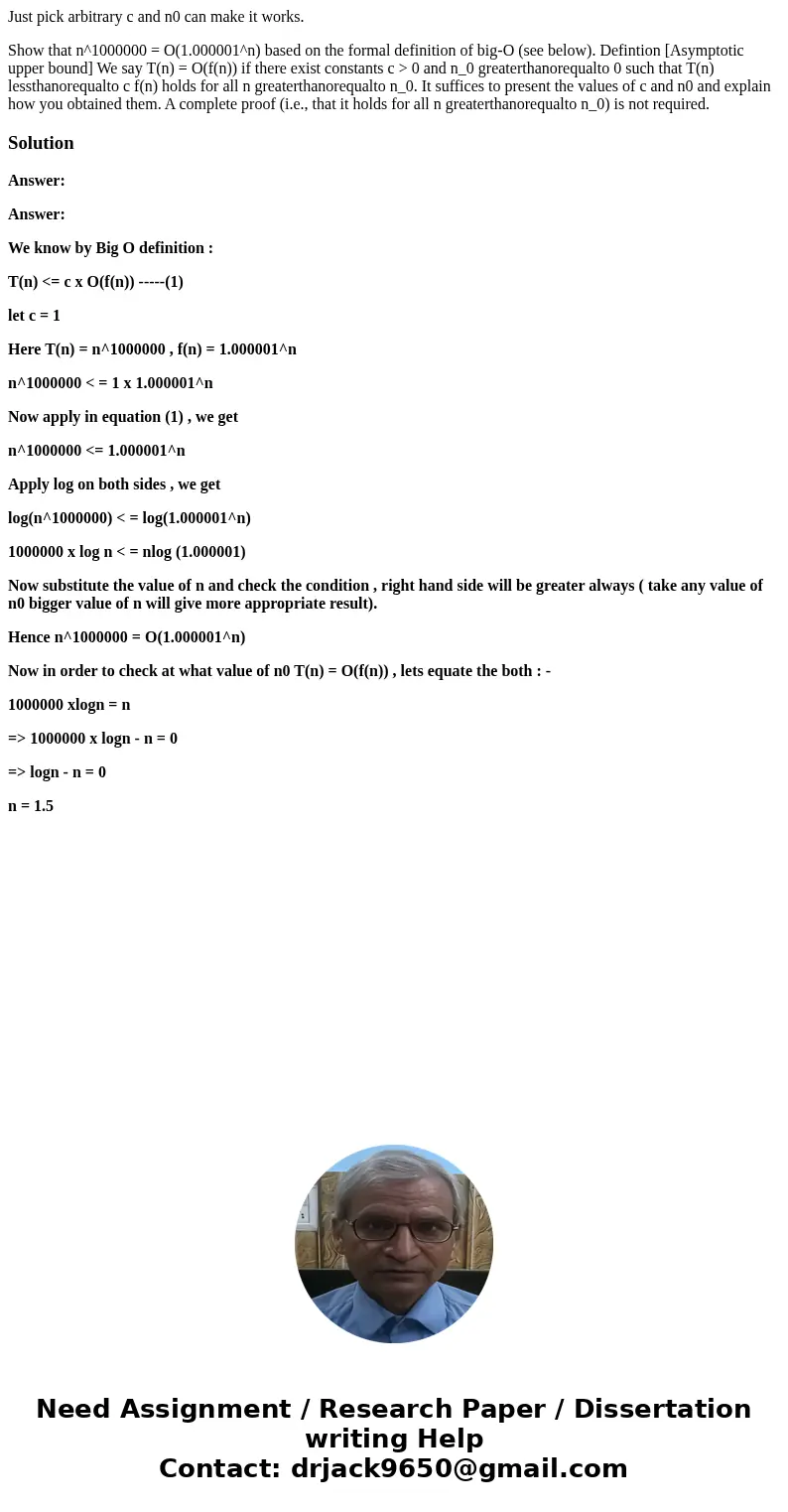Just pick arbitrary c and n0 can make it works Show that n10
Just pick arbitrary c and n0 can make it works.
Show that n^1000000 = O(1.000001^n) based on the formal definition of big-O (see below). Defintion [Asymptotic upper bound] We say T(n) = O(f(n)) if there exist constants c > 0 and n_0 greaterthanorequalto 0 such that T(n) lessthanorequalto c f(n) holds for all n greaterthanorequalto n_0. It suffices to present the values of c and n0 and explain how you obtained them. A complete proof (i.e., that it holds for all n greaterthanorequalto n_0) is not required.Solution
Answer:
Answer:
We know by Big O definition :
T(n) <= c x O(f(n)) -----(1)
let c = 1
Here T(n) = n^1000000 , f(n) = 1.000001^n
n^1000000 < = 1 x 1.000001^n
Now apply in equation (1) , we get
n^1000000 <= 1.000001^n
Apply log on both sides , we get
log(n^1000000) < = log(1.000001^n)
1000000 x log n < = nlog (1.000001)
Now substitute the value of n and check the condition , right hand side will be greater always ( take any value of n0 bigger value of n will give more appropriate result).
Hence n^1000000 = O(1.000001^n)
Now in order to check at what value of n0 T(n) = O(f(n)) , lets equate the both : -
1000000 xlogn = n
=> 1000000 x logn - n = 0
=> logn - n = 0
n = 1.5

 Homework Sourse
Homework Sourse